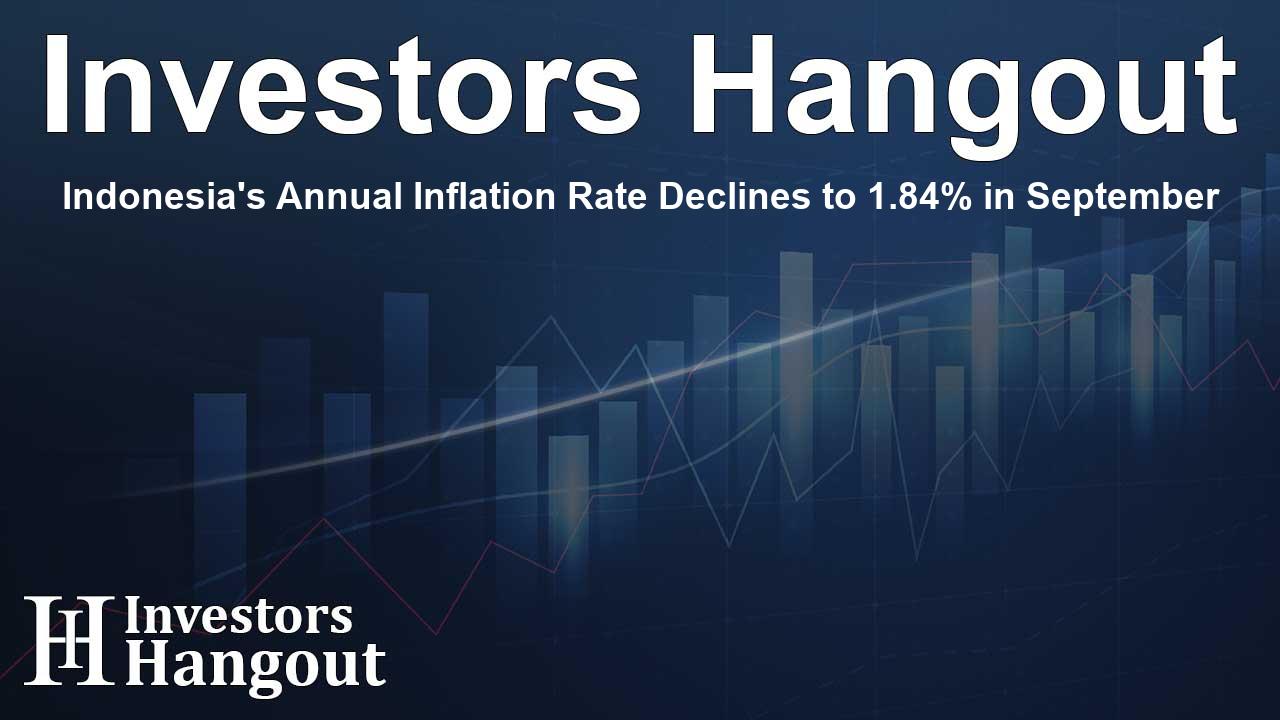Indonesia's Annual Inflation Rate Declines to 1.84% in September

Indonesia's Inflation Rate Trends in September
In recent data releases from Indonesia, the annual inflation rate for September has been recorded at a modest 1.84%. This figure reflects a decline from the previous month of August, which registered an inflation rate of 2.12%. Such a shift indicates a stable economic environment, aligning well within the ongoing targets set by Bank Indonesia.
Expectations and Economic Indicators
Notably, analysts surveyed by Reuters projected a slightly higher inflation rate of 2.00% for September. Bank Indonesia has established its inflation target range between 1.5% and 3.5% for the current year, making the reported 1.84% a positive indicator of economic stability and effective monetary policy.
Core Inflation Data Insights
As the economy progresses, the statistics bureau is expected to release core inflation data later, which will provide more insights into the broader economic picture. Core inflation generally excludes volatile prices such as food and energy, focusing instead on underlying price trends. This data is crucial for understanding more about consumer purchasing power and inflationary pressures within the economy.
Implications for Future Economic Policy
The decline in inflation could influence future monetary policy decisions by Bank Indonesia, as central banks often adjust interest rates to align with inflationary trends. With inflation firmly within the target range, there could be opportunities for stimulating economic growth through favorable monetary policies without risking overheating the economy.
Frequently Asked Questions
What is the annual inflation rate in Indonesia for September?
The annual inflation rate in Indonesia for September is recorded at 1.84%.
How does this figure compare to August?
In August, the inflation rate was higher at 2.12%, indicating a decrease in inflation for September.
What is the inflation target range set by Bank Indonesia?
Bank Indonesia has set an inflation target range of 1.5% to 3.5% for the year.
What does the core inflation data indicate?
Core inflation data, which will be released later, provides insights into underlying economic conditions by excluding volatile items.
How might this affect economic policy?
The lower inflation rate may influence Bank Indonesia's monetary policies, possibly allowing for supportive measures to encourage economic growth.
About Investors Hangout
Investors Hangout is a leading online stock forum for financial discussion and learning, offering a wide range of free tools and resources. It draws in traders of all levels, who exchange market knowledge, investigate trading tactics, and keep an eye on industry developments in real time. Featuring financial articles, stock message boards, quotes, charts, company profiles, and live news updates. Through cooperative learning and a wealth of informational resources, it helps users from novices creating their first portfolios to experts honing their techniques. Join Investors Hangout today: https://investorshangout.com/
Disclaimer: The content of this article is solely for general informational purposes only; it does not represent legal, financial, or investment advice. Investors Hangout does not offer financial advice; the author is not a licensed financial advisor. Consult a qualified advisor before making any financial or investment decisions based on this article. The author's interpretation of publicly available data shapes the opinions presented here; as a result, they should not be taken as advice to purchase, sell, or hold any securities mentioned or any other investments. The author does not guarantee the accuracy, completeness, or timeliness of any material, providing it "as is." Information and market conditions may change; past performance is not indicative of future outcomes. If any of the material offered here is inaccurate, please contact us for corrections.